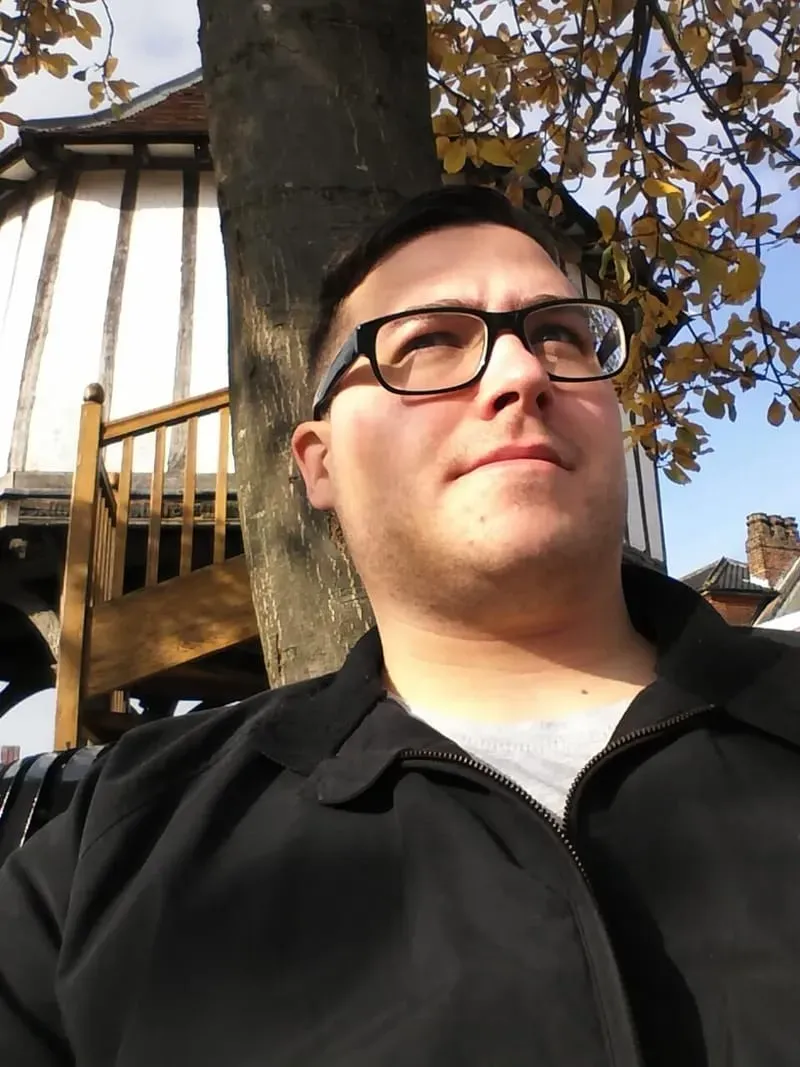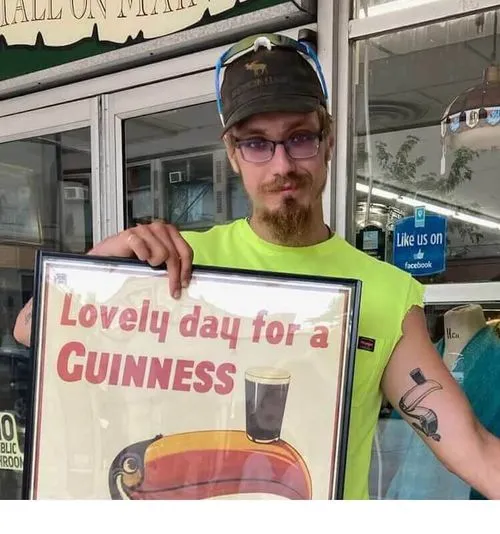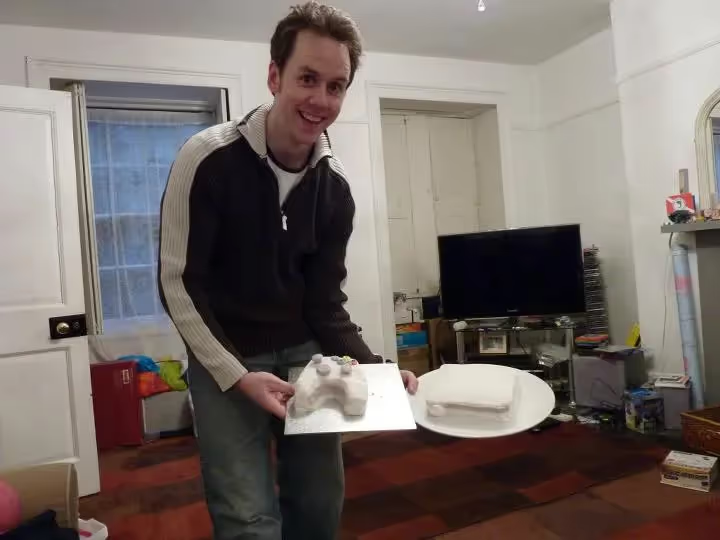
A veteran of the games industry turned indie developer, Simona Maiorano hails from the region of Apulia in southern Italy. She is hard at work on her new game Leaves, which she describes as “A contemplative adventure game with a branching story.” We caught up with her to find out what the local games industry scene is like, how she’s finding indie life, what Leaves is all about, and the struggles she has faced as a woman and activist.
The Power of Art in Tough Times
Maiorano has been having a rough time lately. When we spoke to her, it was her 51st day in quarantine. “We can’t go more than 200 metres away from home. From my apartment to the nearest seaside it’s 1.7 kilometres. It has never been a big distance, but now it is. I lost my nonna [grandmother] a few weeks ago, and I couldn’t say goodbye. I can’t visit my parents who live in the same region.”
But she’s not letting it get to her, she’s using it as fuel for her work on Leaves. “Despite all of this, it is a very productive moment for me: the only way I can visit a familiar place is in my game. I can hear the sea, I can shape the world all around. I can almost touch the grass and the vegetation. Now, more than ever, I think that when you work on something personal it can save your life. When videogames have the power to save your life and make you feel better, they are art.”
Maiorano’s passion for videogames as art is tangible as she continues, “Art is not a luxury. Everybody should make art [and] create videogames. Not only for the aesthetic pleasure, but to express and free themselves. In this regard, I’d like more women to make videogames.” Maiorano goes on to quote Audre Lorde, an American writer and activist, “For women, then, poetry is not a luxury. It is a vital necessity of our existence. It forms the quality of the light within which we predicate our hopes and dreams toward survival and change, first made into language, then into idea, then into more tangible action.” For Maiorano, it is clear that games, art, and activism go hand-in-hand.
Activism and Videogames

“I was born on International Women’s Day, March 8th, so this is a very important day to me. I used to celebrate my birthday by reflecting on women’s rights and marching in the streets,” she tells us. Because she couldn’t celebrate the event this year due to COVID-19, she decided to create The Feminist Game Jam as a way to “keep on fighting.”
However, Maiorano is aware that there are those who bemoan games that are too political. “Even though some players don’t like politics in games, they must understand that we, as developers, can’t avoid politics, because we are political actors and videogames are a powerful narrative medium. It can help raise awareness on important issues.” This, of course, is an important point for players to understand. Though you might not be in the mood for a heavy game experience, it is important that these types of games exist.
But it isn’t just feminism that Maiorano is a proponent of. “I am an activist, and two years ago I created and co-organised a small showcase of anti-fascist games and art. We had two editions of Antifa Art & Games festival; it's supposed to take place also in 2020 for its third edition.”
Working on Her Own Terms
Maiorano is not a newcomer to the games industry. She has worked as a games journalist and videogame localiser, and climbed her way from QA tester and community manager to designer. Now she uses her talents to freelance alongside her work creating Leaves.
“I really like it. And plus I’m a perfectionist, so it’s almost the perfect job for me. But at the same time, I can’t suppress my creativity,” Maiorano says. Being the captain of her own ship seems to suit her, then.“In my free time, I’ve always studied and researched game design and narrative, I write a lot. Leaves is a natural expression of my aspiration as a game designer. I can’t help but do what makes me feel good.”
Using videogames as a medium for discourse on important topics is something Maiorano is passionate about. So much so that she founded the local game developers community, as well as other conventions. “I host and co-organise the local Global Game Jam and several other events mostly dealing with videogames and art; I founded a non-profit organisation, Game Art Dev, with the aim to support the local scene and the game industry in Italy.” It’s clear that Maiorano possesses both a formidable work ethic and passion for the trade.
Funding and the Struggles of Being an Indie Dev in Italy
Being an indie developer is hard at the best of times. Everything relies on you, and you can’t just call in the big guns when the going gets tough. So we decided to ask Maiorano about her experiences as an indie developer trying to get funding for her projects.

“[Being an indie dev is] creative and diverse, but all of this is undermined by the lack of funds and tax credit. It is not easy to start a small company or a studio, and sometimes we even struggle to survive because funders or publishers are almost unreachable. Speaking for me, I’ve tried to access small funding programme for videogames, like the Indie Game Fund, with no luck.”
We always hear the indie success stories, but what we don’t hear about is the majority of unsuccessful applicants to programs designed to help indie developers.
“I tried to reach some publishers and funders out there,” says Maiorano. “All of them are full of good intentions. Let’s take the ‘Indie fund’ for example. On their website, they say: ‘Indie Fund is a funding source for independent game projects, run by a collective of experienced game makers looking to encourage the next wave of game developers.’ I applied only to find out that they are not going to give you a nod on your project. They don’t play the games, they only look [at] videos or screenshots and read the pitch. They say that screenshots or videos don’t need to be fancy, they only need to convey the game. In any case, they don’t give any feedback, unless you have a contact. Also, you will never know if they check your application or not.”
Maiorano is understanding, however. “I know that they would probably get hundreds of emails and applications, but from this side it is a bit daunting. You need high levels of self-commitment not to let go, to keep going on. This is what being independent means to me.”
Her positivity in the face of adversity is certainly admirable, but it’s obvious just how much motivation it takes to keep pushing forward as an indie developer. You must believe in yourself, because nobody else is coming to help you. “In the end you are alone in front of your computer or notebook and the risk of failure is high,” she tells us.
Sexism and Sexual Harassment in the Games Industry

Discrimination of all kinds is still common in many industries and countries, but it’s a particular problem in the Italian games industry. “A problem with the Italian scene is its urgent need to cope and deal with issues such as sexism and the gender pay gap. As a woman, I experienced negative and toxic behaviours from other developers, I experienced gatekeeping and discrimination… A lot of people think that the video game industry is not a safe place for women.”
When she opens up about her experiences to people, she is treated as if she must be the one to change, not the perpetrators. “When I share my experience with others, some say ‘Why do you keep on working in this field?’...Well, I like it, and the best I can do is to resist and try changing things from inside.”
Things are progressing, but the toxic behaviours aren’t disappearing as fast as Maiorano would like. “The game industry is addressing some of the main issues, such as sexism, crunch time and gatekeeping. But this process is much harder in the local Italian game scene: if you don’t name a problem that problem doesn't exist. That’s why it is so difficult to cope with some topics here. The best we can do is to keep denouncing what’s wrong and doesn’t work, by naming it.”
This isn’t just hearsay, she speaks from first-hand experience. “If a colleague threatens to put his member on my desk (it happened to me), this is not a joke, this is sexual harassment and psychological violence. We must train ourselves to recognise violence, to denounce it and to take part.”
According to Maiorano, whoever you are, actually doing something when you see this behaviour occurring is a key part of helping to create a better world and work environment for all, even outside of the video game industry. But these experiences haven’t made Maiorano bitter. If anything, it has made her even more determined to complete her new game: Leaves.
So, What Exactly Is Leaves?

It’s a story-based game about a woman returning to her hometown after disappearing years before. You will unlock the memories of what happened as you progress, and interacting with the environment will reveal your character’s thoughts and emotions. Maiorano is, of course, tight-lipped about sharing much more than that. “It deals with complex events, such as family dramas, but mostly it deals with human feelings, impression and memories.” It sounds like fans of games such as Dear Esther should take note.
Maiorano is harnessing her life experiences as inspiration for the game. “Leaves is totally about me and my experiences... It is not an autobiographical game but kind of. It is deeply personal...I’m constantly inspired by everything in my past, present and future. This is a game on contradictions: it is about both fears and courage, about leaving but also coming back, and about feeling powerless and restless at the same time.”
Not only does Maiorano cite Virginia Woolf, ergodic literature, poetry, music, and movies as her influences, she is also affected by the natural world. “I always lived by the sea, surrounded by nature, and I felt a special connection with these elements. I think that the main influence comes from the need to be part of that.”
However, Leaves wasn’t always destined for a wider audience. “It started as an experiment on random narrative, I created a prototype in one month: the tree with the falling leaves. It was very simple and basic but I noticed that the more I spent time on it the more I could experiment and expand the main core. I could put everything of me in it. It happened in a subtle way, at first, and then I became aware of that. I didn’t expect that, I thought I would throw everything away as I did with my previous project. I found a way to express myself, instead. This was powerful.”
Maiorano is pouring her heart and soul into this game.
Lasting Impressions

Our interview with Simona Maiorano was inspiring. Not only does she want to make the world a better place, she wants to use videogames as a way to do it. She is also one of those rare people who truly lives by her convictions, which is evident in how she works on Leaves. “I work on Leaves [remotely] with my friend Firtina, the programmer. We talk a lot about the game, we define goals and tasks on Trello and we set an indicative deadline that works for both of us, according to our life and plans. No rush, no limitations, no crunch time. We travel and attend conventions together. We want Leaves to reflect our friendship, collaboration and experiences.”
Leaves will consist of several episodes, with a target completion date of Q2 2021. The first episode will be released on Steam and VR on or before Q4 2020.
You can subscribe to Jump Chat Roll on your favourite podcast players including:
Let us know in the comments if you enjoyed this podcast, and if there are any topics you'd like to hear us tackle in future episodes!



